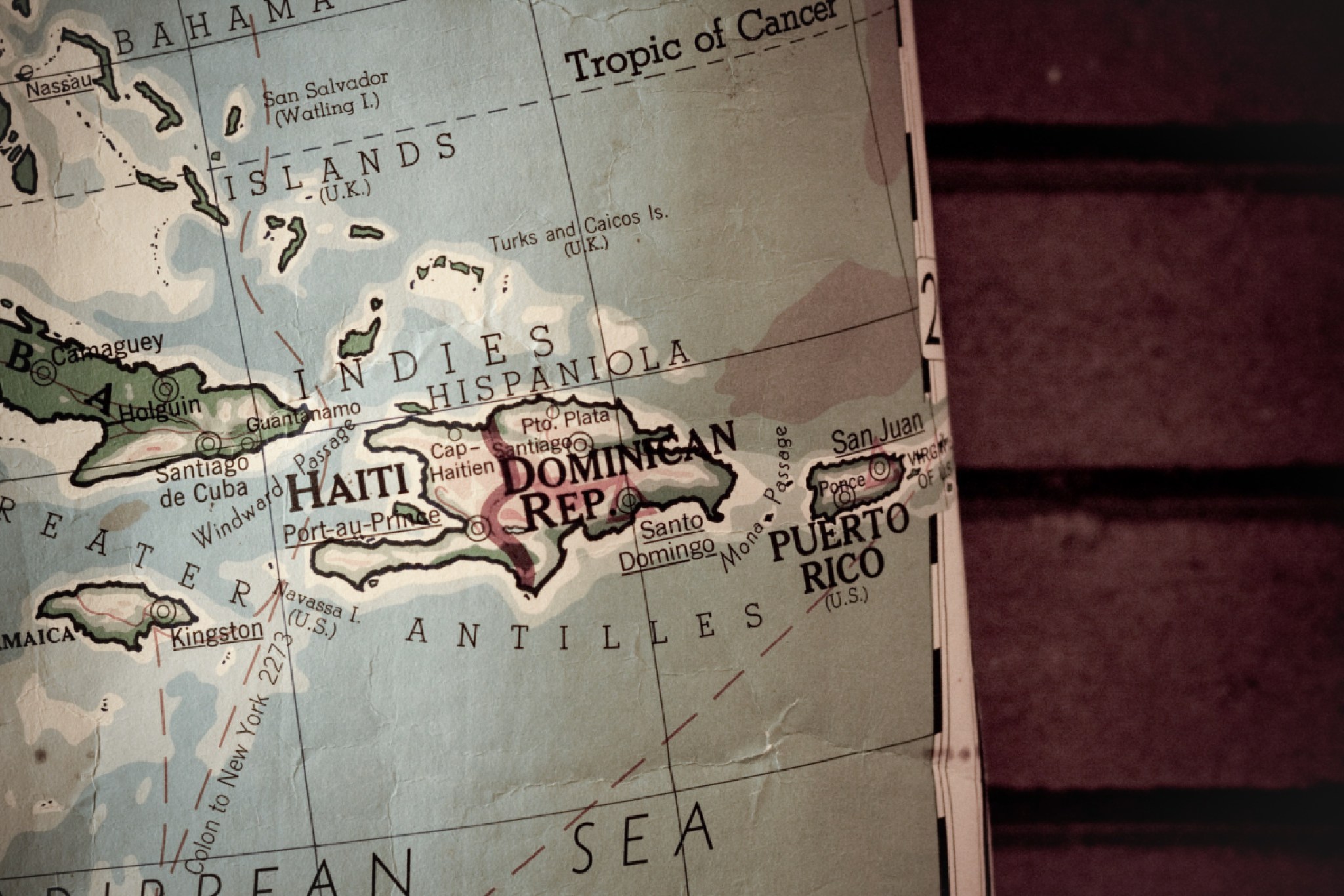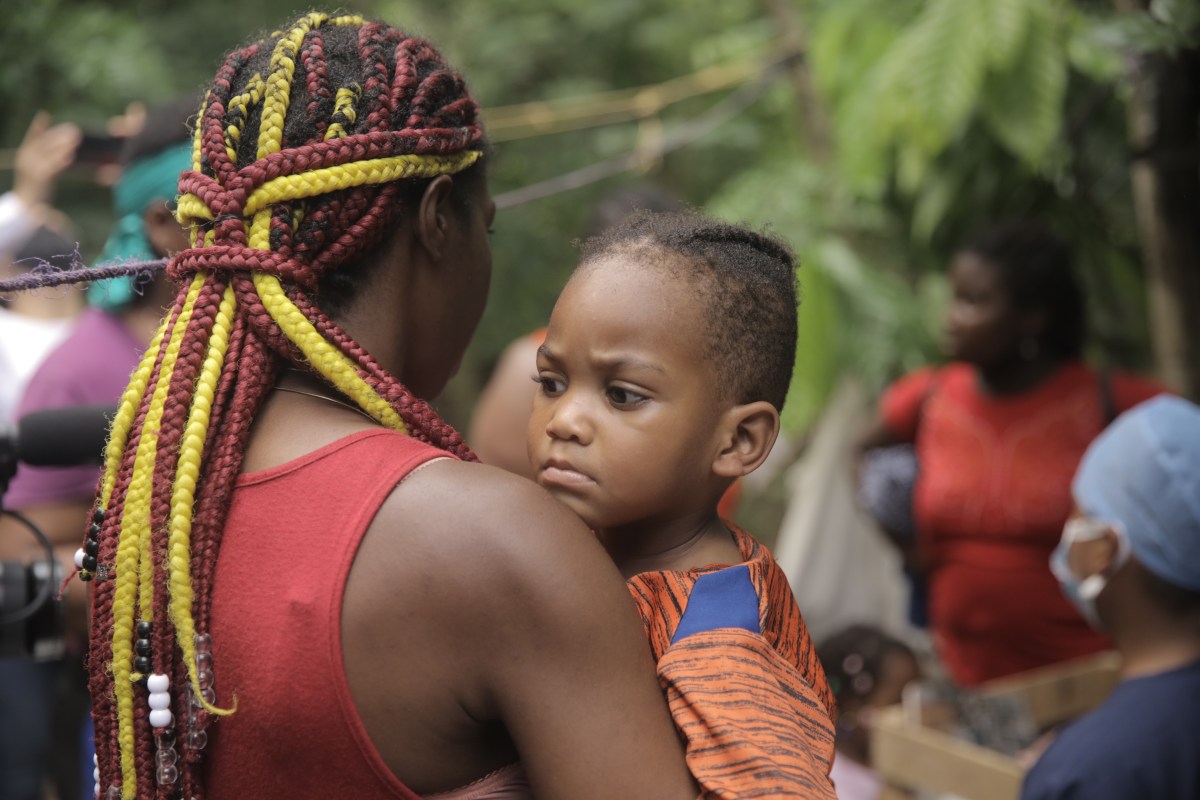The faces are changing. As we provide food and health aid to our migrant friends in northern and southern Mexico, we couldn’t help but notice the growing number of Haitians now present in the crowds. The thousands of Haitian migrants moving north toward the US border are there because of the courage of their ancestors, and the poor treatment by many of ours.
Imagine sitting in a room with nine friends or family members. Maybe there are kids running around, playing tag. Grandparents, their faces liked scratched medallions, are sipping decaf coffee, telling stories of yesteryear. On your lap, a baby cries. Now, imagine that six of you live below the poverty line. See how your picture changes as if generated by morbid computer-generated imagery. Your clothing tatters, your mother’s back curves into an S, you see your kids’ ribs poking through their T-shirts. No one eats three meals a day. In the aftermath of the latest earthquake or hurricane, the room’s walls have given way to ruin. Outside, there is the putrid smell of rot where flies buzz jazz. This is life in today’s Haiti, where sixty percent of Haitians live below the poverty line. How Haiti became so poor has its roots in its colonial beginnings. How Haiti was strong-armed to pay France reparations in order for its independence to be recognized.
Haitians fought and won their independence from France shortly after The United States won its independence in the Revolutionary War. In fact, 800 Haitian troops supported US troops during the Battle of Savannah during the Revolutionary War. The US drafted its constitution in 1787 while Haitians wrote theirs in 1804. Yet, France and the United States refused to recognize Haiti’s independence. Like mean girls in high school, European powers and their Caribbean counterparts shunned Haiti, refusing to trade with it. The embargo on Haitian products hurt its development, so Haiti, once the biggest sugar producer in the world, lost 99.7% of its market share.
France continued to bully Haiti, demanding payment for its lost plantations and slaves in return for diplomatic recognition in 1825. (The United States didn’t have to make a similar payment to England.) Haiti was willing to compensate France, thinking ten million in gold francs would do it. In response, France sent 14 gun-boats to Haiti, each armed with 500 guns pointed at Port-au-Prince, and demanded 15 times that amount, one hundred and fifty million gold francs—$21 billion today.

All those guns trained on the port. How could Haiti refuse?

One hundred and fifty million gold francs was equal to ten years of Haiti’s revenue. Can you imagine paying ten times your yearly salary to compensate those who bought and sold you into slavery? Not to mention, where would you get the money with a decimated economy? You’d have to borrow it, which is what Haiti did, needing more than a century to pay France her debt and its creditors their interest. Almost all of Haitian borrowing in the twentieth century was used to cover the cost of reparations.
These numbers are huge, but they don’t consider the loss of earning opportunities, the synergistic effect of smart investment. What wealth could have been created if those 150 million gold francs had been invested in development? It took six generations for Haiti to pay off this debt. One hundred and fifty years of everything earned, scrimped, and saved used to climb out of a debtor’s hole.
For those 150 years, nothing was invested in infrastructure, so when an earthquake or a hurricane struck, the government could not rebuild. Nothing was invested in health care, so when a pandemic struck, not one vaccination was administered until after a year in. Nothing was invested in education, so many people were left ill-equipped to face the challenges of the 21st century.
Haiti’s political instability, undeveloped infrastructure, gang violence, foreign intervention, and natural disasters have contributed to its poverty today. However, these factors are directly rooted in paying reparations, which paralyzed Haiti’s development. As a result, Haitians migrate in search of a life with hope and stability instead of violence.
This is the first in a series of posts that explore why our Haitian friends in Mexico, struggling to find a secure place to call home, are in the situation they are today.


